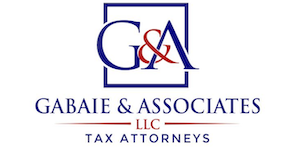Before 2019, a tax judgment lien in Maryland never expired – but that changed last year when Maryland Governor Larry Hogan signed a law allowing certain tax liens on some real or personal property to terminate 20 years from the date of assessment.
According to the IRS, a federal tax lien is the government’s legal claim against your property when you neglect or fail to pay a tax debt. The lien protects the government’s interest in all your property, including real estate, personal property, and financial assets.
For individuals and businesses, tax liens can be detrimental in many ways. They can harm finances, damage credit, and jeopardize assets. The financial impact of a tax lien can be similar to declaring bankruptcy and possibly result in the government acquiring and selling your property.
Effects of Maryland’s New Statute of Limitations Law
Maryland’s new law alters an established rule that was clarified by the Court of Special Appeals in the 2015 case Comptroller of Maryland v. Shipe: “The language in Tax-Gen. §13-806 does not waive the state’s immunity and clearly indicates that a tax lien ‘continues to the date on which the lien is: (1) satisfied; or (2) released by the tax collector.'”
As a result of the new law, there is now a 20-year statute of limitations for tax judgment liens in Maryland, meaning even liens on income tax will expire 20 years after the date of assessment. Tax-Gen. §13-806 has been amended to state that when a lien arises on the date of notice a tax is due, it will continue until (1) the lien is satisfied or released by the tax collector, or (2) 20 years after the date of assessment.
Does Maryland’s New Law Benefit Taxpayers?
For taxpayers who want to find a compromise and settle an income tax liability, this new amendment may be helpful. Previously, the state comptroller lacked the motivation to accept any offer less than the full amount since the lien never expired. As a result of the new law, the comptroller may consider accepting an offer representing an amount that could reasonably be collected before the SOL expires. This time limit motivates the comptroller to accept a taxpayer’s offer and gives the taxpayer a better chance to resolve their debt.
However, there is still a great deal of uncertainty regarding how to apply the new SOL law. For example, the law has an uncertain impact on collections since the law does not explicitly state whether its provisions apply retroactively. Therefore it may be unclear whether the statute of limitations applies to certain debts, particularly when only a portion of the debt was assessed more than 20 years ago, with the balance assessed within the deadline.
If you’re concerned about tax judgment liens in Maryland, it’s wise to contact a reliable and experienced tax attorney. Gabaie & Associates, LLC represents clients in tax issues nationwide. Call us at 443-345-8291 or contact us online for a free consultation.

